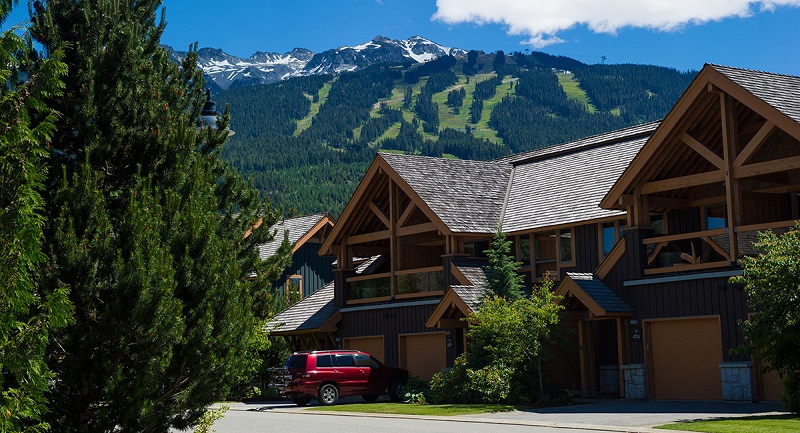Are you considering venturing into the world of rental properties but unsure of which type of business would be the best fit for you? In this article, we will explore various types of businesses that are well-suited for rental properties. From traditional long-term residential rentals to vacation homes and commercial spaces, we will discuss the pros and cons of each option. Whether you are a first-time investor or an experienced real estate mogul, this article will help you make an informed decision on the best type of business for rental properties.
Traditional Long-Term Residential Rentals
One of the most common and straightforward choices for rental property investors is long-term residential rentals. This involves renting out houses, apartments, or condominiums to tenants on a long-term basis, usually with a lease agreement of at least one year. However, it’s also worth exploring the option of outdoor space for rent, which can provide an additional stream of income and attract tenants who are looking for a backyard or patio area to enjoy.
Pros:
- Steady income: Long-term residential rentals provide a reliable monthly income stream, making it easier for investors to plan and manage their finances.
- Lower turnover: With long-term tenants, you can enjoy a lower turnover rate, reducing the time and resources spent on finding new tenants.
- Less maintenance: Compared to vacation rentals, long-term residential properties typically require less maintenance since tenants are responsible for routine upkeep.
Cons:
- Limited flexibility: Once you sign a lease agreement with a long-term tenant, it may be challenging to make changes to the rental terms or terminate the lease before its expiration date.
- Market variability: The rental market can fluctuate, and there may be periods of time where finding tenants becomes more challenging or rental rates decrease.
Vacation Rentals
If you prefer a more dynamic and potentially lucrative option, vacation rentals could be the right choice for you. With the rise of platforms like Airbnb and VRBO, the short-term rental market has exploded in popularity.
Pros:
- Higher rental income: Vacation rentals can often generate higher rental income, especially in popular tourist destinations or during peak travel seasons.
- Flexibility: As the owner, you have more control over when and how long you rent out your property, allowing you to use it for personal vacations as well.
- Potential tax benefits: Depending on your location and the local regulations, you may be eligible for tax deductions or benefits when operating a vacation rental.
Cons:
- Seasonal demand: Depending on the location of your vacation rental, the demand and rental rates may be highly seasonal. This means you need to carefully plan for periods of low occupancy.
- Higher maintenance costs: Vacation rentals often require more frequent cleaning, property management, and maintenance to ensure a positive guest experience.
Commercial Rentals
While residential properties tend to be the more popular choice, don’t overlook the potential of commercial rentals. Leasing office spaces, retail storefronts, or industrial warehouses can offer unique opportunities for rental property investors.
Pros:
- Longer leases: Commercial leases are typically longer than residential leases, providing more stable and predictable income for investors.
- Professional tenants: Businesses are generally more reliable and responsible when it comes to paying rent and maintaining the property.
- Opportunity for growth: If you choose the right location and attract successful business tenants, the value of your commercial property may increase over time.
Cons:
- Higher initial investment: Commercial properties generally require a larger upfront investment compared to residential properties.
- Complex lease agreements: Commercial leases tend to be more complex and involve specific terms and conditions that both parties must navigate.
Conclusion
Choosing the best type of business for rental properties depends on various factors, including your investment goals, risk tolerance, and personal preferences. Long-term residential rentals offer stable income, while vacation rentals can be more lucrative but come with higher maintenance costs. Commercial rentals provide unique opportunities for growth but require a larger investment and more complex leasing agreements. Ultimately, it is essential to conduct thorough research, assess your financial situation, and consider the local market conditions before making a decision.
FAQs (Frequently Asked Questions):
- How much money do I need to start a rental property business?
It varies depending on the location and type of property you plan to invest in. However, as a general guideline, you should be prepared to have enough funds for the down payment, closing costs, and any necessary renovations or repairs. - Are rental properties a good investment for passive income?
Yes, rental properties can be an excellent source of passive income. However, it is important to consider factors such as property management, maintenance costs, and potential vacancies when evaluating the expected return on investment. - Can I use a property management company to handle my rental properties?
Yes, hiring a professional property management company can help alleviate the day-to-day responsibilities of managing rental properties. They can handle tenant screening, rent collection, maintenance, and other tasks, allowing you to focus on the strategic aspects of your business. - Are rental properties affected by economic downturns or recessions?
During economic downturns, rental properties may be impacted by factors such as increased vacancies or reduced rental rates. However, they have historically shown to be more resilient compared to other types of investments, as people will always need a place to live or do business. - How can I attract reliable tenants for my rental properties?
To attract reliable tenants, make sure your property is well-maintained and priced competitively. Conduct thorough tenant screening, including background and credit checks, and provide excellent customer service to create a positive rental experience.




